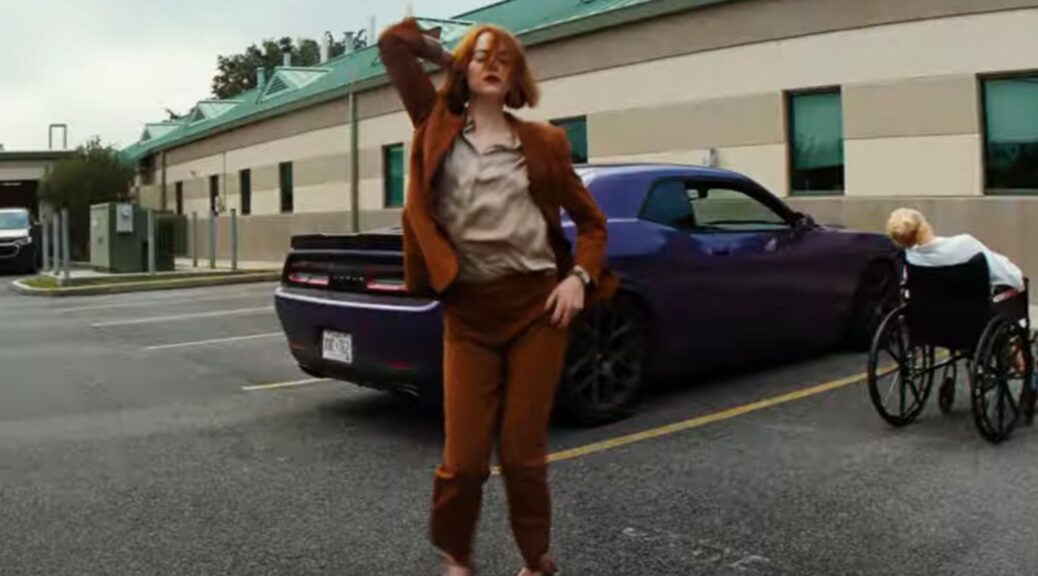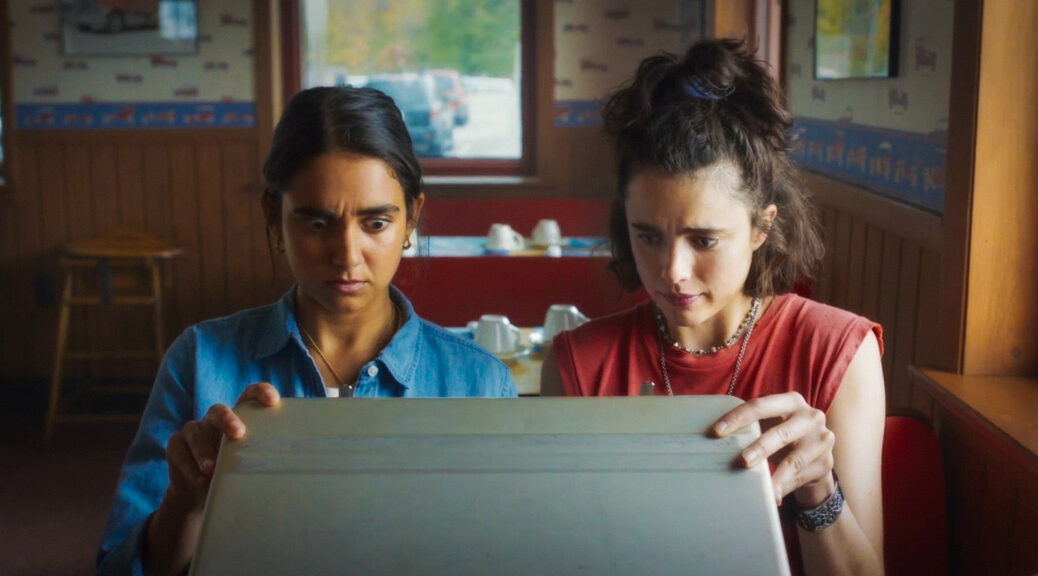Kinds of Kindness
by George Wolf
Yorgos Lanthimos debuted as a writer/director nearly twenty years ago, with 2005’s Kinetta. Since then, each feature has seemed to push his brand of black comedic satire closer and closer to the mainstream. His last two features, The Favourite and Poor Things, brought him new levels of acceptance and praise.
Well, don’t get used to it. Kinds of Kindness finds Lanthimos at his most abstract, curious and unexpectedly hilarious.
Writing again with Efthimis Filippou, Lanthimos crafts an anthology with a strong stable of actors that includes Emma Stone, Jesse Plemons, Willem Dafoe, Hong Chau, Margaret Qualley and Mamoudou Athie. They rotate through various roles in three chapters, each connected by a strange man known only as “the R.M.F.”
Part one finds a man exiled from his years-long benefactor after deviating from the strict life schedule chosen for him. We then move to the story of a cop who is relieved when his missing wife returns, and then suspicious that the woman is not his wife at all. Finally, a woman abandons her family to join a cult and search for a spiritual guide with the ability to raise the dead.
Lanthimos reunites with cinematographer Robbie Ryan, but don’t expect more fisheye lenses or unnerving POVs. Here, we’re kept off balance by imposing architecture and wide, sparsely populated spaces, all waiting to be firebombed by Lanthimos and his sudden blasts of heavy metal music, insane driving, group sex, and bit part players that don’t seem like actors at all among this splendid ensemble.
A soundtrack full of staccato piano and chorale harmonies adds to the tightly controlled exercise that often speaks to lost control and uneasy compliance. You have no idea where any of this is going, which allows Lanthimos to keep levels of interest and fascination high as the running time balloons to nearly three hours.
This is dense and demanding cinema, complex and sometimes utterly confounding. It can wander self-indulgently, then slap your face with moments of brilliance, hilarity, insight and even horror.
No doubt, Kinds of Kindness is all kids of trippy. But it’s a trip that is unquestionably and unapologetically stamped by Yorgos Lanthimos. No brand of weird can comment on our human condition quite like his or trust us enough to take from it what we need the most.







